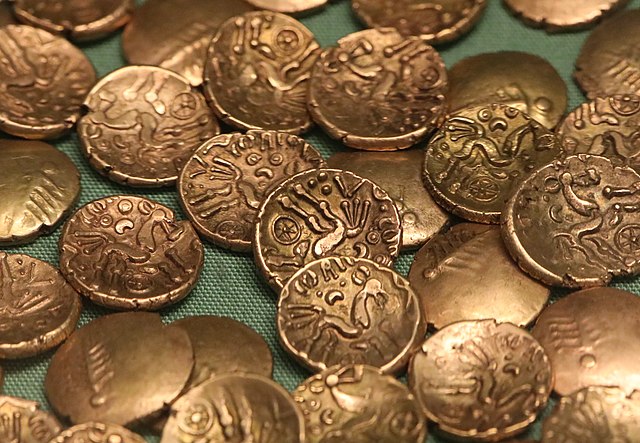kurtak
Well-known member
this law pertains to the criminal acts of counterfeiting forgery &/or fraud concerning money in particular (making money without authorization by/from the government)18 U.S. Code § 486
to utter means to declare, express, denote- Uttering coins of gold, silver or other metal
per the bold print that means you can not make a coin with a dollar value stamped on it for that would be declaring/expressing/denoting that the coin has a dollar value - as current money - stamped on it"Whoever, except as authorized by law, makes or utters or passes, or attempts to utter or pass, any coins of gold or silver or other metal, or alloys of metals, intended for use as current money,
per the bold print - even if it is of your own designwhether in the resemblance of coins of the United States or of foreign countries, or of original design, shall be fined under this title or imprisoned not more than five years, or both."
In other words - if you tried stamping out $20 gold eagles (without being a licensed/authorized mint) you would be guilty of counterfeiting (U. S. government patent/design)
or if you made your own (design) coin - & put a dollar value on it (declare (utter) it to have a dollar value) you would be guilty of forgery (making your own money)
on the other hand - gold & silver are commodities that are traded everyday on the up & down value they have as a commodity --- they only become currency if you declare (utter) them to have a dollar value (stamp them with a dollar value)
So - by law - as long as you ONLY stamp it with the weight & how fine it is you are only declaring it's commodity value in the up & down market as you are not declaring it to have a dollar (currency) value
so in the case of ONLY stamping it with it's weight & how fine the metal content is you are not committing any crime - as long as the weight & how fine it is are true - if the weight & how fine it is are not true you would then be guilty of fraud
there is no law against identifying &/or trading a commodity as long as the commodity is true as identified
Kurt

















































